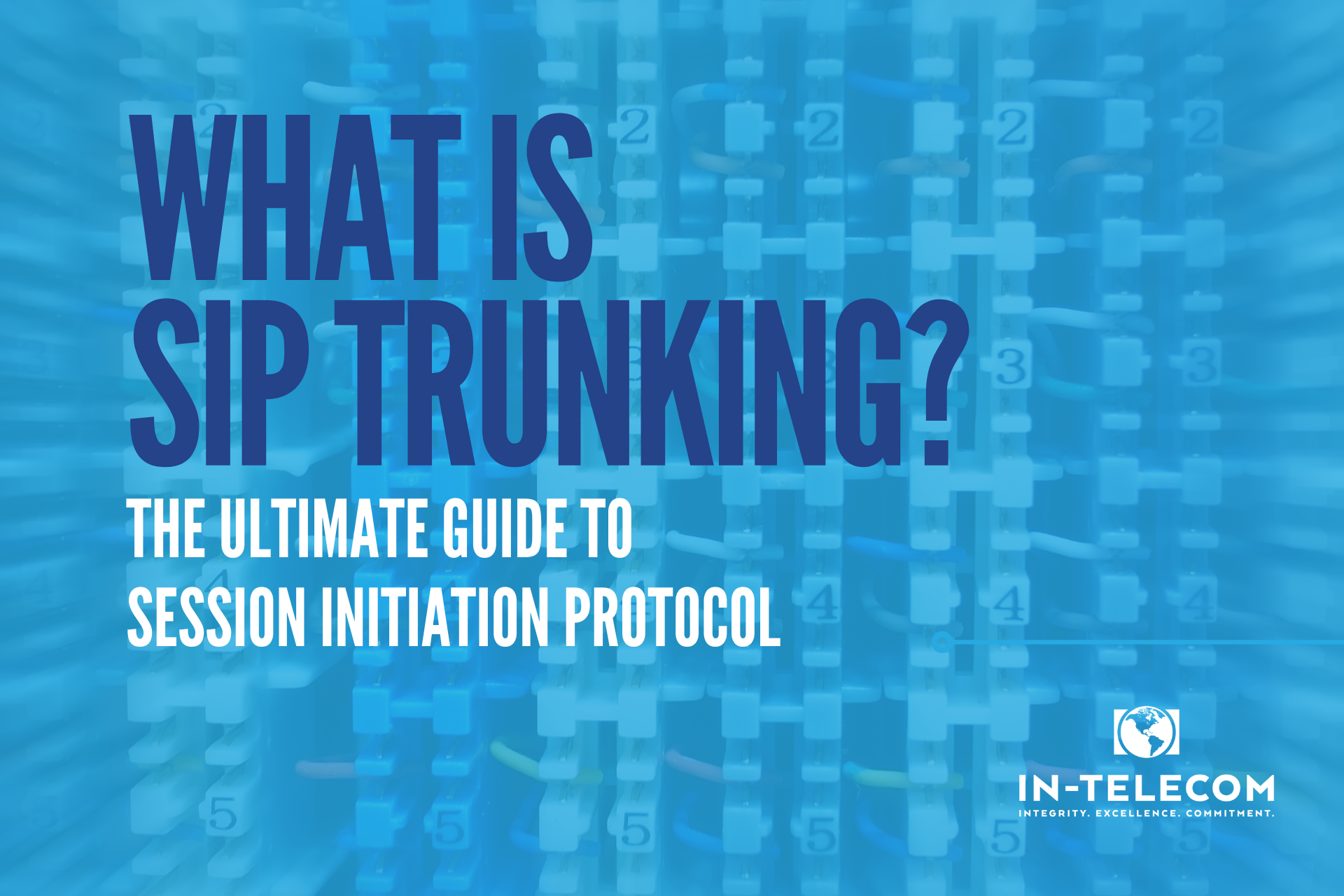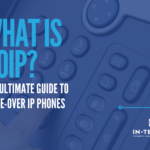
In today’s fast-paced business environment, communication is more critical than ever. With the rise of remote work and the need for flexible, cost-effective solutions, SIP trunking has become a popular choice for businesses looking to improve their telecommunications infrastructure. Which begs the question, what is SIP Trunking and how does it benefits companies?
What is SIP Trunking?
SIP (Session Initiation Protocol) trunking is a technology that allows businesses to use their existing internet connection for voice and data communication.
It is a cost-effective and flexible alternative to traditional phone lines, allowing companies to make and receive calls over the internet rather than through a traditional PSTN (Public Switched Telephone Network) connection.
Table of Contents
Benefits of SIP Trunking
SIP trunking is a modern solution for businesses looking to improve their telecommunications infrastructure. It offers a range of benefits, including cost savings, flexibility, scalability, and advanced features such as voicemail to email, fax to email, and automated voice menus.
There are also important security features such as encryption, authentication, firewall and intrusion detection, and spam and fraud prevention, helping businesses to keep their communications and data safe.
With its ease of implementation and wide range of features, SIP trunking is an ideal solution for businesses of all sizes looking to improve their communications and operations.
Immediate Cost Savings
One of the most significant benefits is the cost savings it can provide. Using your existing internet connection eliminates the need for separate phone lines and the associated costs.
Session Initiation Protocol (SIP) can help you avoid long-distance and international calling charges, as calls are made over the internet. The cost savings can be substantial, and it can help small and medium-sized businesses save a significant amount of money on their telecommunications expenses.
Increased Business Scalability
Another significant benefit of SIP trunking is its scalability. It allows you to easily add or remove lines as your business needs change without additional hardware or installation costs. This means your business can grow and evolve without requiring a significant overhaul of your telecommunications infrastructure. This scalability allows companies to adapt to the changing needs of their customers and employees.
Flexibility to Work from Anywhere
SIP trunking also offers a high degree of flexibility, allowing you to make and receive calls from anywhere with an internet connection. Your employees can work from home, on the road, or anywhere else without missing important calls.
Additionally, SIP trunking allows you to easily integrate your phone system with other business applications, such as CRM or ERP, to improve efficiency and productivity. The flexibility of SIP trunking allows businesses to work in a way that best suits their needs and customers’ needs.
Significantly Higher Reliability Than Traditional Lines
SIP trunking is also highly reliable, providing businesses with a 99% uptime. With SIP trunking, calls are routed over the internet, ensuring that your business remains connected even if one of your primary lines goes down.
Additionally, SIP trunking providers often offer disaster recovery and business continuity plans, ensuring that your business can always make and receive calls, even in an emergency. This reliability is crucial for companies, as it ensures that they can always stay in touch with their customers and employees and that their business is running smoothly.
Advanced Features of SIP Trunking
There are a wide range of advanced features that can help businesses to improve their communications and operations. Some of these features include:
- Automatic call routing: This feature allows calls to be automatically routed to the appropriate person or department, ensuring that customers are always connected to the right person.
- Caller ID: This feature allows businesses to see the caller’s phone number, even if the call is from a different location.
- Call forwarding: This feature allows businesses to forward calls to a different phone number or voicemail, ensuring that important calls are never missed.
- Call recording: This feature allows businesses to record calls for training, quality assurance, or compliance purposes.
- Conferencing: This feature allows businesses to hold conference calls with multiple participants, regardless of their location.
- IVR (Interactive Voice Response): This feature allows businesses to set up automated voice menus and prompts, making it easy for customers to navigate different options and reach the correct department or person.
- Fax to email: This feature allows businesses to receive faxes electronically, eliminating the need for a physical fax machine and the associated costs.
- Voicemail to email: This feature allows businesses to receive voicemails as audio files via email, making it easy to listen to them on the go or forward them to other team members.
These features can help businesses improve their communications and operations, making it easy for them to stay connected with their customers and employees.
Ease of Implementation Compared to Traditional Lines
SIP trunking is also easy to implement, requiring minimal setup and configuration. With SIP trunking, businesses can use their existing internet connection and IP-based PBX (Private Branch Exchange) system, eliminating additional hardware or installation costs.
Additionally, many SIP trunking providers offer online portals and self-service tools, making it easy for businesses to manage and configure their services.
Advanced Security Features for Business
Security is a crucial concern for businesses, and SIP trunking offers several security features to help protect against potential threats. Some of these features include:
- Encryption: Encryption to protect the data transmitted over the internet, ensuring that it is not intercepted or compromised.
- Authentication: Authentication to ensure that only authorized users can access the system and make calls.
- Firewall and intrusion detection: Providers often offer firewalls and intrusion detection systems to protect against potential security threats.
- Spam and fraud prevention: Providers also offer spam and fraud prevention features, helping to protect businesses from unwanted calls and potential scams.
These security features can help businesses keep their communications and data safe, reducing the risk of security breaches and data loss.
Is SIP Trunking Right for Your Business?
SIP trunking is a cost-effective, flexible, and reliable solution for businesses looking to improve their telecommunications infrastructure. Companies can save on costs, scale their lines as their business grows, and ensure that their employees can work from anywhere without missing important calls.
Additionally, SIP trunking offers a wide range of advanced features and security measures that can help businesses to improve their communications and operations. Once set up, your business will be well-equipped to handle today’s fast-paced and ever-changing business environment.
If you’re looking for a SIP Trunking Service Provider, schedule a free consultation with one of your team members today!






